A massive stroke marked a serious change in the weather for Mark McEwen, whose familiar face brought viewers the weather forecast on the 1990s’ “CBS This Morning.” McEwen keynoted the May 15 Cardiovascular Health Policy Summit in Washington, DC, describing how he struggled to regain speech, mobility and fine motor skills.
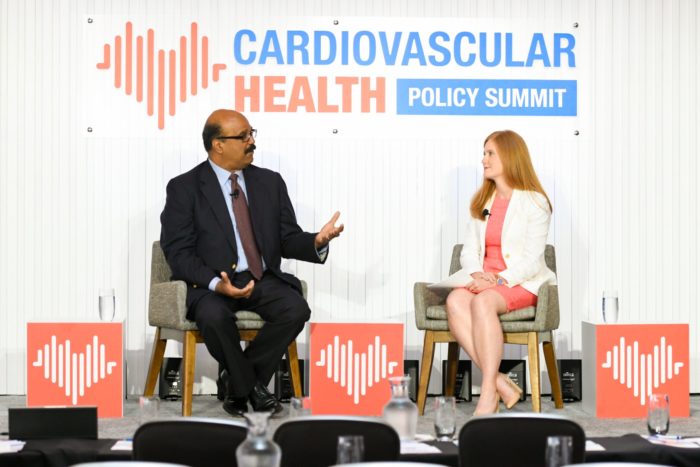
That struggle resonated with the summit’s attendees – including patients, advocates, clinicians, Capitol Hill staff and government representatives. The day’s series of speakers and panel discussions illustrated how cardiovascular health issues are “both prevalent and personal,” as characterized during opening remarks by the Alliance for Patient Access’ Brian Kennedy.
Policy solutions also featured prominently. In addressing the summit audience, U.S. Rep. Larry Bucshon, MD, (R-Ind.) explained that he ran for public office because he thought the nation needed more health care providers in the federal government. “Turns out I was right,” Rep. Bucshon noted.
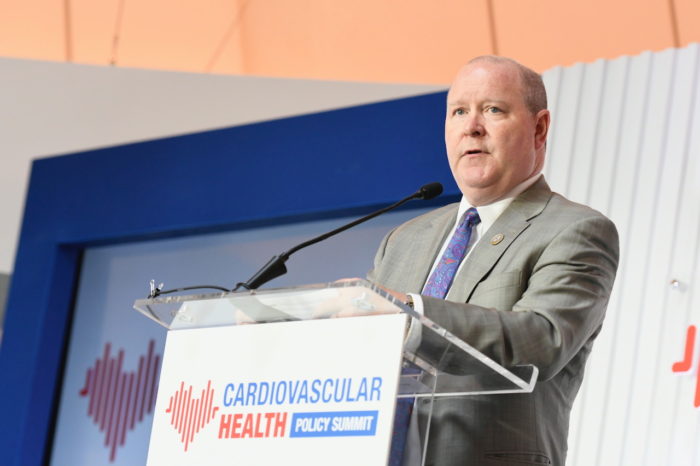
Rep. Bucshon highlighted the challenges posed by the federal 340B drug pricing program. He also lamented that the health care system overall does not provide incentives to bring down costs.
And costs are just one of the health care system’s challenges when it comes to cardiovascular care, as attendees and participants throughout the day explained.
The Diabetes-Cardiovascular Connection
A panel discussion on diabetes and cardiovascular health explored how comorbid conditions heighten risks and shape patients’ unique health care needs.
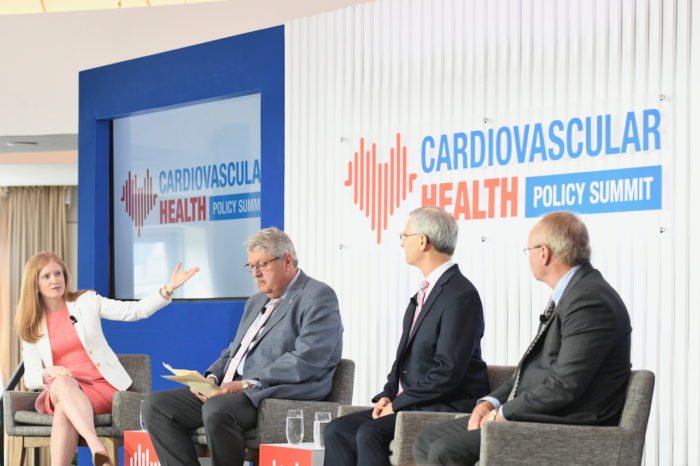
- John Clymer of the National Forum for Heart Disease & Stroke Prevention explained that people with Type 2 diabetes are two-four times more likely to suffer a cardiac event. Clymer referenced his organization’s recent “Wrong Direction” report, which details the increase in preventable cardiovascular deaths. To correct course, Clymer explained, the health care system needs to “tear down the siloes.”
- Stewart Perry of the National Diabetes Volunteer Leadership Council described the importance of diabetes action plans, currently adopted by roughly 30 states. The plans ask states to develop a strategy to “move the needle on fighting diabetes,” Perry explained.
- Ken Thorpe, PhD, of the Partnership to Fight Chronic Disease emphasized the need for care coordination. Patients need health care providers to have a comprehensive strategy, Dr. Thorpe explained, not a “disease-by-disease” approach.
Access Barriers
Moderated by AfPA Cardiovascular Disease Working Group chairman Seth Baum, MD, a panel discussion on access barriers examined why heart patients struggle to get the care they need.
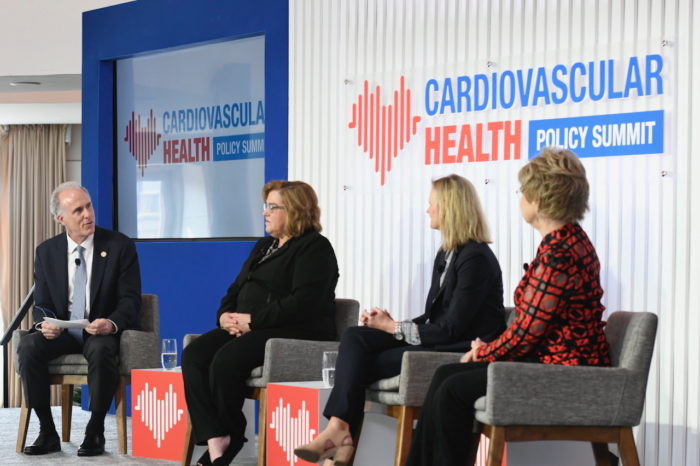
- Donnette Smith of Mended Hearts described her personal battle to access the PCSK9 inhibitor prescribed by her physician. Smith spent two years working through her insurance company’s prior authorization and step therapy requirements. “I was almost ready to give up,” Smith recalls, adding, “It was insane.”
- Sue Koob of the Preventive Cardiovascular Nurses Association expressed concern about new co-pay accumulator adjustment programs. The programs allow patients to use co-pay coupons to cover their out-of-pocket cost for a prescription drug but do not credit the coupon toward the patient’s deductible. “How are patients supposed to stay on top of that?” Koob exclaimed.
- Cynthia Bither, RN, of the American Association of Heart Failure Nurses described her frustration with the insurance paperwork burden placed on clinicians. Baum reiterated the frustration, adding, “Physicians are retiring early because of this.” On the topic of formulary restrictions, Bither noted, “I can’t prescribe the drug I want to.”
Overcoming Disparities
A third panel discussion explored how disparities impede cardiovascular care for certain patient groups.
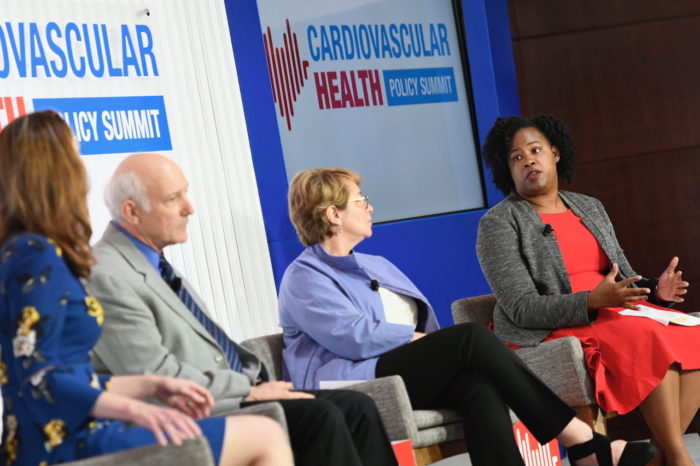
- Michael Engelgau, MD, of the Heart, Lung and Blood Institute at the National Institutes of Health described how the gap between African American and Caucasian American’s heart health has begun to close as Caucasians’ health has worsened. “That’s not a good thing,” Dr. Engelgau explained of the narrowing gap, but “you can do something about it.”
- Jovonni Spinner of the Department of Health and Human Services’ Office of Minority Health emphasized the importance of cultural competency and educational materials that meet the healthy literacy needs of different populations.
- Jeanne Regnante of Sustainable Healthy Communities described the importance of partnering with community leaders in areas where health disparities exist. Of geographic disparities, Regnante explained that 70% of African Americans with heart failure live in only 1,800 out of the country’s 38,000 zip codes.
Technology
Patients who survive heart attack or stroke often leave the hospital with an armful of discharge paperwork. But do they read, understand or follow these instructions? Most likely not, according to Corrie Health’s Francoise Marvel, MD, and Seth Martin, MD. The duo spoke with AfPA’s Brian Kennedy in an on-stage summit interview.

“It’s not working,” Dr. Marvel explained of the current system, “and nobody’s doing anything differently.”

Nobody except Drs. Marvel and Martin, that is. The pair joined forces with Johns Hopkins University to create Corrie, a smart phone app that helps keep heart attack survivors on track. From alerting the patient with reminders about medication and medical appointments to providing up-to-date research articles and videos, the tool equips patients to self-manage in the aftermath of a cardiac event.
The interview highlighted the growing space for technology solutions to improve cardiovascular health.
Despite obvious challenges in cardiovascular care, the summit’s overarching tone was one of hope. From patients overcoming cardiac events to health care providers battling insurance barriers, Mark McEwen’s parting advice rang true for all of the summit’s attendees. “Don’t give up,” McEwen emphasized, “Pull your sleeves up and jump back in.”

